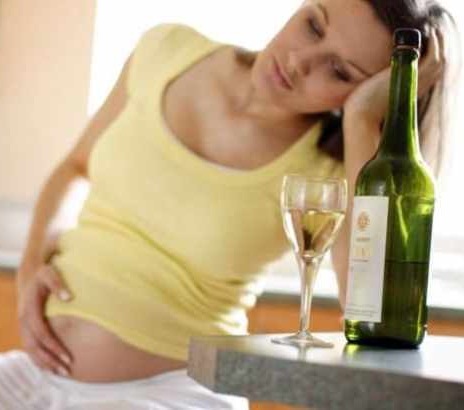
The idea that pregnant women should avoid alcohol is commonplace, even among women who have no intentions of becoming pregnant. Indeed, the vast majority of pregnant women don’t drink, much less become binge drinking women. Mothers most typically avoid alcohol to prevent their child from developing possible health issues such as heart defects, poor growth, and problems with speech. Alcohol consumption can sometimes also lead to miscarriage or premature birth.
Unfortunately, pregnant women who do decide to binge drink typically do so in exactly the same fashion as nonpregnant women who binge drink. In other words, they do so just as frequently, and with roughly the same number of drinks per session, according to a new study by the Centers for Disease Control and Prevention (CDC).
Three Times a Month, Six Drinks a Session
According to the study, roughly 15% of women who are not pregnant reported engaging in binge drinking at some point in the previous 30 days. By comparison, only 1.4% of pregnant women reported doing the same.
Unfortunately, both nonpregnant and pregnant women who reported binge drinking did so approximately three times per month, and consumed an average of six drinks during each session.
Clark Denny, health scientist for the National Centers on Birth Defects and Developmental Disabilities within the CDC, said that the findings are “concerning because binge drinking is a dangerous pattern of alcohol consumption for both pregnant and nonpregnant women.”
Defining “Binge Drinking”
Binge drinking is defined as having four or more drinks in a single session, at least for women. Women are more likely to binge drink after becoming pregnant if they also engaged in binge drinking before becoming pregnant, according to the CDC study. The researchers said that binge drinking rates among pregnant women could be curbed my measures that would provide interventions and screenings to nonpregnant women.
The Dangerous Effects of Binge Drinking While Pregnant
Over 1% of children born in the U.S. are affected by a condition within the fetal alcohol disorder spectrum, including fetal alcohol syndrome, or FAS. These types of disorders can lead to permanent developmental disabilities and neurological disorders.
Animal studies have indicated that engaging in occasional sessions of binge drinking is more damaging to fetal brain development than drinking a larger amount of alcohol spread across sessions in which fewer drinks are consumed.
The Nature of the Study
The CDC report was based on a study involving over 345,000 women, nearly 14,000 of whom were pregnant. All of the women were between the ages of 18 and 44. The study was part of the Behavioral Risk Factor Surveillance System, a phone-based survey intended to collect information about human behaviors that could impact public health.
According to the study, 7.6% of pregnant women said they drank at least some alcohol within the past 30 days. However, drinking prevalence varied greatly among pregnant women of different age groups. Only 4.5% of pregnant women between the ages of 18 and 24 said they drank, while a surprising 14.3% of pregnant women between the ages of 35 and 44 said the same.
An older CDC study, which examined data gathered between the years of 1991 and 2005, indicated that 12.2% of pregnant women admitted to drinking at least once in the previous 30 days. Although the new study indicates that relatively fewer pregnant women are drinking today, this may be due to the fact that the order of the questions included in the survey was changed. In the older study, women were asked about their drinking habits before being asked about whether they were pregnant. The new survey asked questions about pregnancy status before asking questions about drinking. According to Denny, women may be more likely to hide the fact that they’re drinking if they’ve already admitted to being pregnant.
The new study also found that white women are more likely to drink while pregnant than non-white women. The study found the same in regards to women who were employed and women who had a college education (in other words, women with these attributes were more likely to drink while pregnant).
The Bottom Line
Women who binge drink while pregnant do so just as frequently and with the same number of drinks per session as women who binge drink when they aren’t pregnant, according to a new study by the Centers for Disease Control and Prevention (CDC).
The full text of the study can be found at the website of the CDC.













